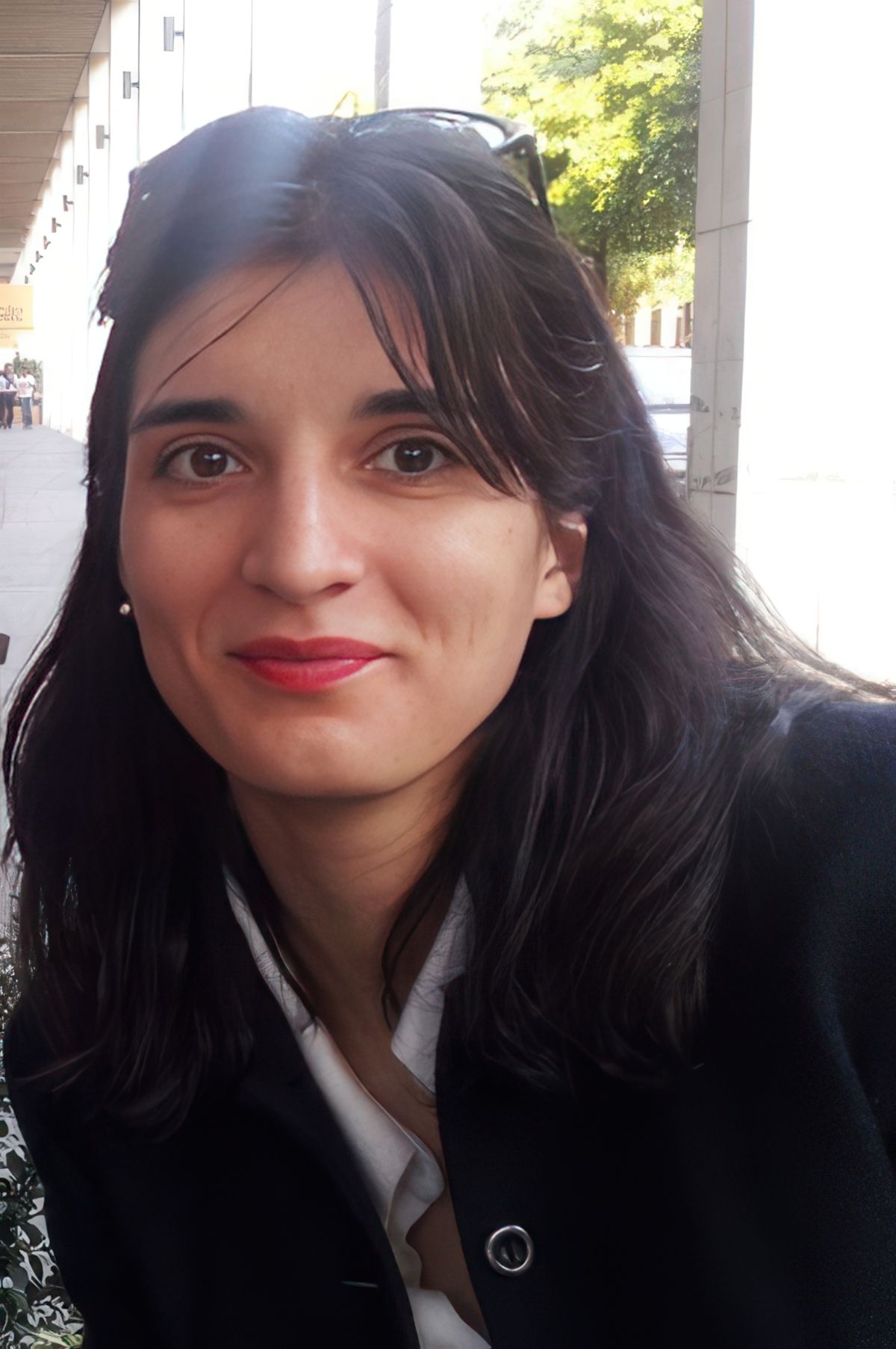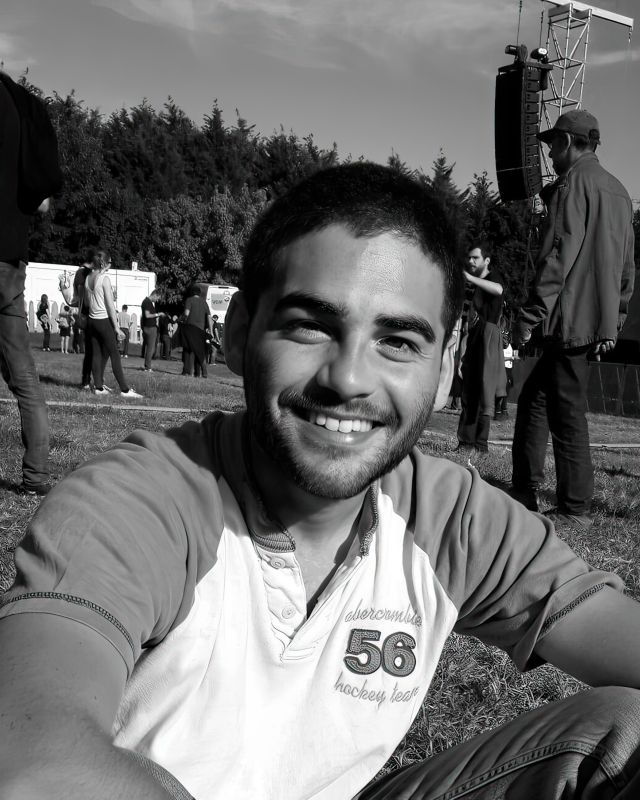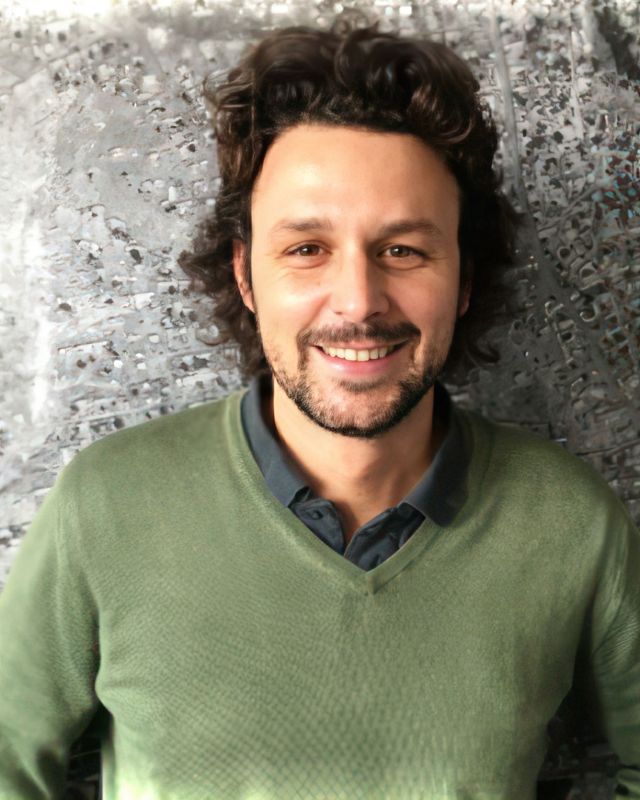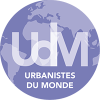Portrait

Gisèle Moret-Deysson - STU 2009 - Professor of history and geography in preparatory classes
Posted on | Alumni Portrait
Portrait by Marion Bigay
Meeting with Gisèle Moret-Deysson, associate professor of history and geography in preparatory classes, graduate of the Master STU in 2009.
What did you do with the STU master?
During my first year of STU I did the collective project on the study of the perception of densification during the public inquiry on the SDRIF for the Caisse des Dépôts et Consignations. I remember it as a very demanding project. It was really intense: there were moments when we were dreaming "SDRIF", that's to say! It was really interesting both in terms of the content but also in terms of the way we worked in groups or went to interview different actors.
The study trip to Nantes was also an important moment in my course in the master. It was there that I realized that I did not necessarily want to work in a community. I felt that I did not want my work to be partly determined by an electoral calendar or influenced by power issues. I arrived in STU with this desire to work on the city and the territories but without really knowing how and I think that there are many of us in this case and it is normal.
So it was as I progressed through the master's program that it became clearer. And precisely to explore other paths, I went to do an internship in an NGO in Latin America during the summer between the two years of the master. It was a very enriching experience: I worked on ecotourism projects in the communes of the Pichincha province in Ecuador. But if I learned a lot, I didn't feel completely in my element and I still didn't know what path to follow after the master.
What was your internship at the end of your studies? How did you find it?
At the end of my second year of STU I opted for an internship in a geography research lab. As I said before, I wanted to explore as many avenues as possible in order to make a decision for the post-master. I had loved geography in pre-preparatory school and that's what brought me to the STU master's degree: being very interested in urban geography, I wanted to do some "applied urban geography".
I talked about it with my STU professor on "Cities of the South", Jean-Fabien Steck, who put me in touch with a geography professor who was looking for someone to do the fieldwork for her new research program. This program was about the analysis of the social mix in gentrified neighborhoods in Paris, London and San Francisco.
The particularity of this analysis was that it focused on the issue of children (school strategies, perception of social mix and territorialization of children). I was in charge of doing all the fieldwork in Batignolles. The theme was very interesting and I learned a lot about research and how to conduct sociological interviews.
The negative point of this experience is that I was alone most of the time, I didn't see much of the other researchers. The loneliness of the researcher was exacerbated because I didn't really have a structure or a course to teach that would have allowed me to compensate.
I understood quite quickly that if I continued in this way it had to be within the framework of a thesis grant, both for obvious financial reasons but also because this would have allowed me to have a real framework and not to feel too intensely this solitude which clearly does not correspond to me. However, having gone through a professional master's degree, which was not a university degree, I knew that I had practically no chance of obtaining a university grant. So once I graduated, I was still hesitating between working in urban planning and geography.
What did the Master's program bring you?
The master's degree gave me a lot. If I had to do it again, I wouldn't hesitate for a single second, even if today I don't work in what we can call the natural outlets of STU! I had been used to going into great depth in some subjects in pre-preparatory school and here I learned to multiply the fields of knowledge (but with less depth). It's another way of teaching/learning that is just as interesting. Being able to do economics, law, architectural models, various workshops all in the same week is really great (and sometimes tiring, physically speaking!).
The master also taught me to work in groups. In pre-preparatory school, if you work with friends to revise etc. you are rarely obliged to work in a group for a common project, at Sciences Po and at STU it is almost all the time! Learning to organize yourself differently, to come to an agreement, to manage the conflicts that can sometimes arise... all this prepares us for professional life.
Another very enriching element: speaking in front of an audience. In the end, we are not used to this in pre-preparatory school (the exams are individual) and it was not at all my strong point (which is a shame for a future teacher!). At Sciences Po and in STU, it became usual and it helped me a lot to overcome the fear of the public.
What is your job today? How did you get here? What do you actually do? Do you like it?
So today I am a geography teacher in a preparatory class. How did I get there? As I said, at the end of STU I was still hesitating and I didn't want to go into geography without having a university validation that would give me legitimacy as a geographer.
So I continued in this hesitation for a few months of the year after my graduation as I was looking for a job and interviewing while I began to prepare for the agrégation in geography.
Why the agrégation? For three reasons: I didn't want to do a master's degree in geography again, I like challenges and I thought that once I had the agrégation I could do my year of teaching internship and then research with a grant and a structure.
I got the agrégation, the preparation was really intense. But if life when you pass a competitive exam can be trying, I still loved assimilating so much knowledge and surpassing myself as I was able to do. But you have to be resilient, tough and want it to happen. Not everyone comes out of a competitive exam preparation, and moreover, of the agrégation, unscathed.
Once I was agrégée, I did my teaching internship in Paris. I still remember the day before the beginning of the school year: I was not very well prepared... I also remember the shock when I heard my 5th and 4th graders call me "Madame Moret" for the first time. I had originally set out to do only one year of teaching and in the end and against all odds I loved being a teacher. Apart from the papers that are really the teacher's burden (I have some waiting for me...), it is a very interesting and rewarding job.
I feel like I'm doing something that makes sense to me, I do all sorts of projects in addition to teaching: outings and trips of course, but also photo contests, Model United Nations, short films... In short, teaching isn't just being in front of these students in a classroom.
My favorite part of teaching is the contact with my students: accompanying them, seeing them grow. I was lucky enough to get a position in a bi-national section in Paris after my internship. I taught history-geography in Spanish (BachiBac section) for 5 years at the Maurice Ravel high school and it was 5 very beautiful years during which I was able to follow students during their three years of high school. Seeing them arrive so small in the second year of high school and seeing them go on to their studies and professional lives in the third year, accompanying them and guiding them as much as possible, is what makes me love my job, despite the fact that it is a job that is not very valued in French society.
Since September I have been teaching in preparatory classes at the Montaigne high school in Bordeaux, which is another experience, but just as interesting! It is once again a challenge because the relationships with students are not the same as with high school students, the workload is considerable between classes, exams and copies but it is exciting.
In teaching you can evolve and change, it is not necessarily a straight line. But you have to be aware of several things before starting: you have to like contact with students, if you want to be a teacher only because you like the subject, it may not work. Above all, you have to like to transmit and guide. As far as the practical aspects of being a teacher are concerned, you have to know that there are constraints, you don't choose your establishment: you make wishes.
As far as my assignments are concerned, I don't have a representative career path because I went through the specific postings (bi-national section then preparatory school), that is to say that I got my postings by file. The vast majority of teachers have positions based on their points and the points correspond to seniority and family situation. This means that most young teachers start in less attractive areas that require few points. This should be kept in mind.
If you want to go through the specific positions, the competition is tough. You must therefore put all your chances on your side: DNL certifications that allow you to teach your subject in a foreign language, pedagogical projects, training, publications, inspections, replacements in preparatory classes, etc.
In short, to be able to evolve quickly, you must give your all and not just teach in your classroom. All this requires a lot of work and investment, not necessarily recognized by those who do not know the teaching profession from the inside, but which will always be seen by your students who know how to recognize those who give themselves for them.
Nicolas Fayet - STU 2015 - Mobility Project Manager, Department of Seine-Saint-Denis
Posted on December 28, 2017
Pathway January-July 2015: internship at the Sustainable Mobility Agency, Direction de la Voirie et des Déplacements de la ville de Paris - elaboration of t…
Stéphane Milhaud - STU 2009 - Urban engineer at Groupe Huit
Posted on October 30, 2017
A 2009 STU graduate, Stéphane Milhaud is an urban engineer at Groupe Huit, a French multidisciplinary consulting firm specializing in the municipal and urban d…
 English
English  Français
Français 




